
We kindly inform you that, as long as the subject affiliation of our 300.000+ articles is in progress, you might get unsufficient or no results on your third level or second level search. In this case, please broaden your search criteria.

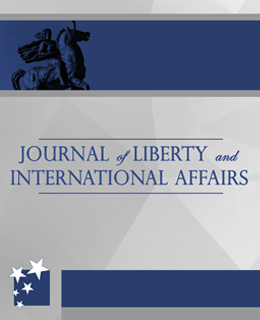
This paper is qualitative and theoretical research of the concept of freedom, perceived through different epistemological traditions. The research focus is laid on the phenomenon of freedom in the frames of liberal ontological and epistemological tradition, freedom as a derivative of the individual liberty, and how the individual liberty remains a precondition for evolving freedom. The beginning is characterized as a comparison between the different freedom traditions, starting with collective freedom traditions, following individualist freedom traditions and finalizing with operationalization of individual liberty. The process of operationalization of liberty, or presenting it as an organizational and regulation principle, leads to demystification of freedom in individualistic traditions, and indicates its tight connection with individual liberty.
More...
Unfortunately, modern liberals have long misrepresented and misused the foundational principles of liberalism, in order to claim that the fundamental function of every democratic state is the pursuit of its citizens’ liberty, as well as to viciously attack all states and leaders that do not consider liberty to be sacrosanct. Via an appeal to the essential works of liberalism and realism, this paper has thoroughly contradicted the claims of modern liberalism and has definitively argued that security, not liberty, is the fundamental purpose of every state. Furthermore, this paper has comprehensively analyzed the USA, in order to demonstrate that, if a state sacrifices the liberty of its citizenry in order to maintain its national security, then the state’s actions are not merely just and ethical vis-à-vis its citizenry, but, rather, fulfill the state’s fundamental, protective, function and are, in fact, an inevitable, benevolent, aspect of the state’s existence.
More...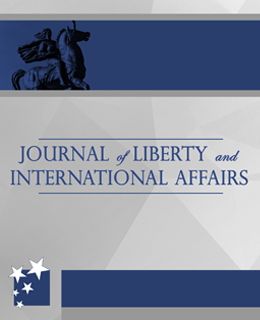
Public diplomacy is an effective, steadily evolving foreign policy tool used all over the world. In the context of current global trends promoting one’s own values and the way of thinking as an objective of public diplomacy is of special interest. Democracy and human rights are among the main values of the Western countries and are promoted by them through a wide range of measures aimed at foreign country’s authorities as well as foreign public including different target audiences. This paper addresses the foundations of public diplomacy activity aimed at democracy promotion abroad. It states that the value of democracy is advantageous to public diplomacy of the West and allows it to hold leading positions offering an attractive model of development for the rest of the world. Democratization measures in conditions of gradual development of democratic institutions as well as in crisis situations are considered.
More...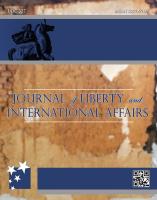
The authors of this paper deal with the role of the USA in the post-Cold War world and their position from the standpoint of relevant indicators and theoretical considerations. This work also refers to path that the United States took from isolationism to the world domination and considers justification of the position of the USA in the period after the Cold War from the point of hegemonic stability theories, while at the end indicates the diversity of understanding of contemporary thinkers regarding the position of the United States as the hegemon or rather “just” a global leader. This paper does not prejudge the final definition of the position of the USA in international relations, but aims to launch discussions on the necessity and justification of the existence of such vision on a global scale.
More...
The European idea of uniting the countries of the European continent is the impetus for attracting and transformation of post communist societies. The process of harmonization of legislation is a systematic attempt at regulation of relations in society through the establishment of valuable principles and adoption of established standards in the management of states and economies. The dilemma is whether it is possible a sustainable development transformation by simply copying the institutional and legal system solutions from Europe, without involving moral value body of principles and standards in ruling the states? The purpose of the paper is to offer a reasoned response on ways how this collision to be resolved, whether the transition can be performed only in a systematic manner, institutionally and legally, or must go in parallel with social intervention in the cultural set and moral value corpus based on verified and approved ethical values, principles and standards.
More...
The relations between the Serbian and the Bulgarian governments were dogged by frontier issues from the establishment of the diplomatic relations between the two countries in 1879 to their suspension in 1884. They were mainly caused by the manner in which the 1879 international commission defined the new Serbian-Bulgarian frontier, leaving on the Bulgarian side pastures, fields and forests of the villages which lay on the Serbian side, and vice versa. In the case of the old borderline, the problems were of an earlier date, persisting from the time of the drawing of the Serbian-Turkish frontier in the 1830s. A particularly difficult problem was the river Timok, which often altered its course. The efforts made by the two governments to solve these problems were not successful, and the dispute over a meadow on the Bulgarian side of the Timok was made the occasion for the break of diplomatic relations.
More...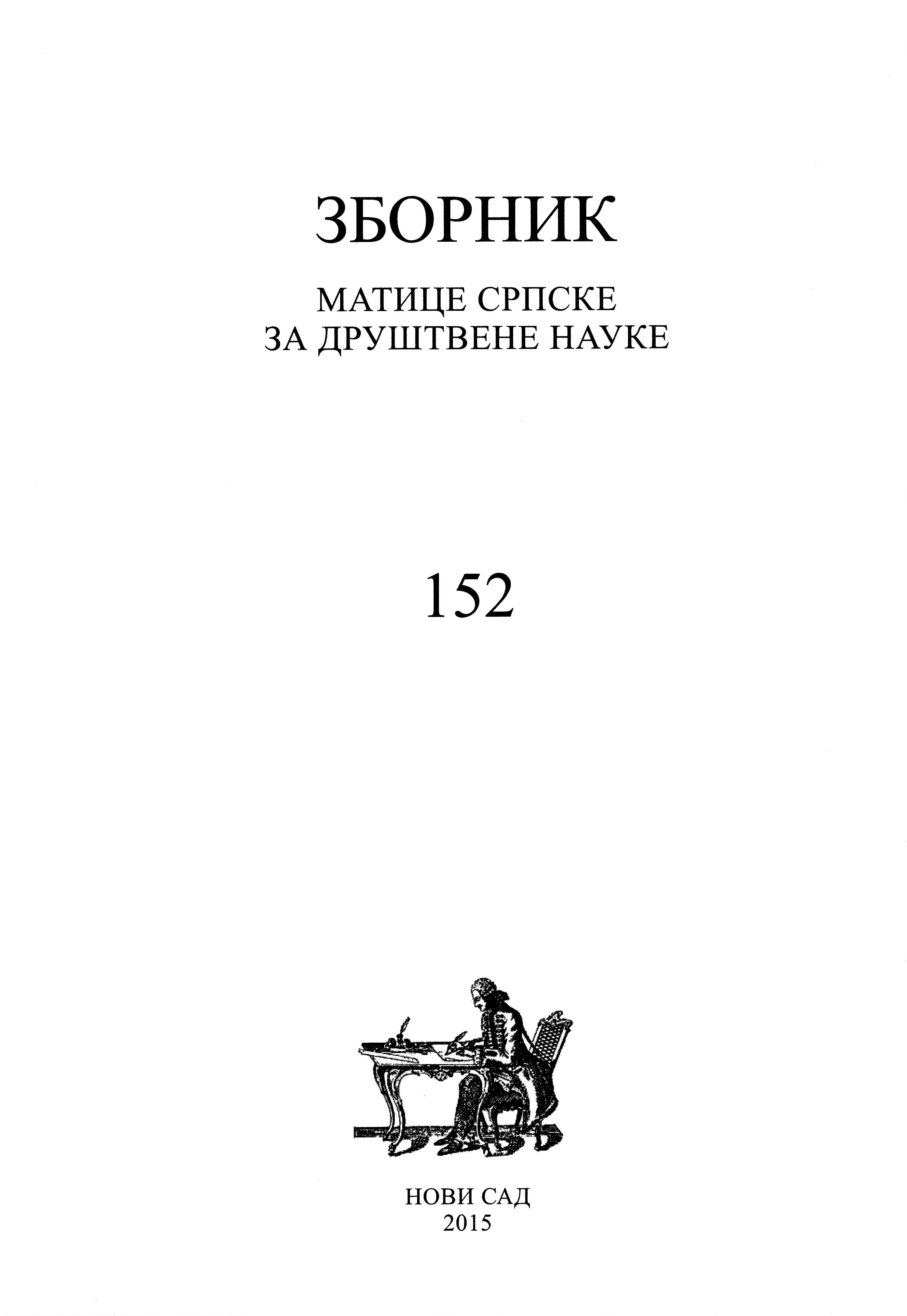
In this paper, we analyze the relationship between globalization and the functioning of democratic systems. The concept that voluntary consent of the majority of citizens gives validity and legitimacy to government in the menagement of social life is central to our understanding of democracy. Voluntary consent is expressed through elections which are held periodically in a pre-defined territory with number of voters known beforehand (relevant community). But global problems necessarily raise the issue of what is relevant community in the case of their resolution. Democratic order is facing serious challenges within the framework in which it is constituted. We assume that nation-states no longer have the exclusive political control over their own territories; consequently, the terms of the functioning of democratic systems are changing and democratic deficit appears. Accordingly, it is necessary to consider new forms of democratic decision-making.
More...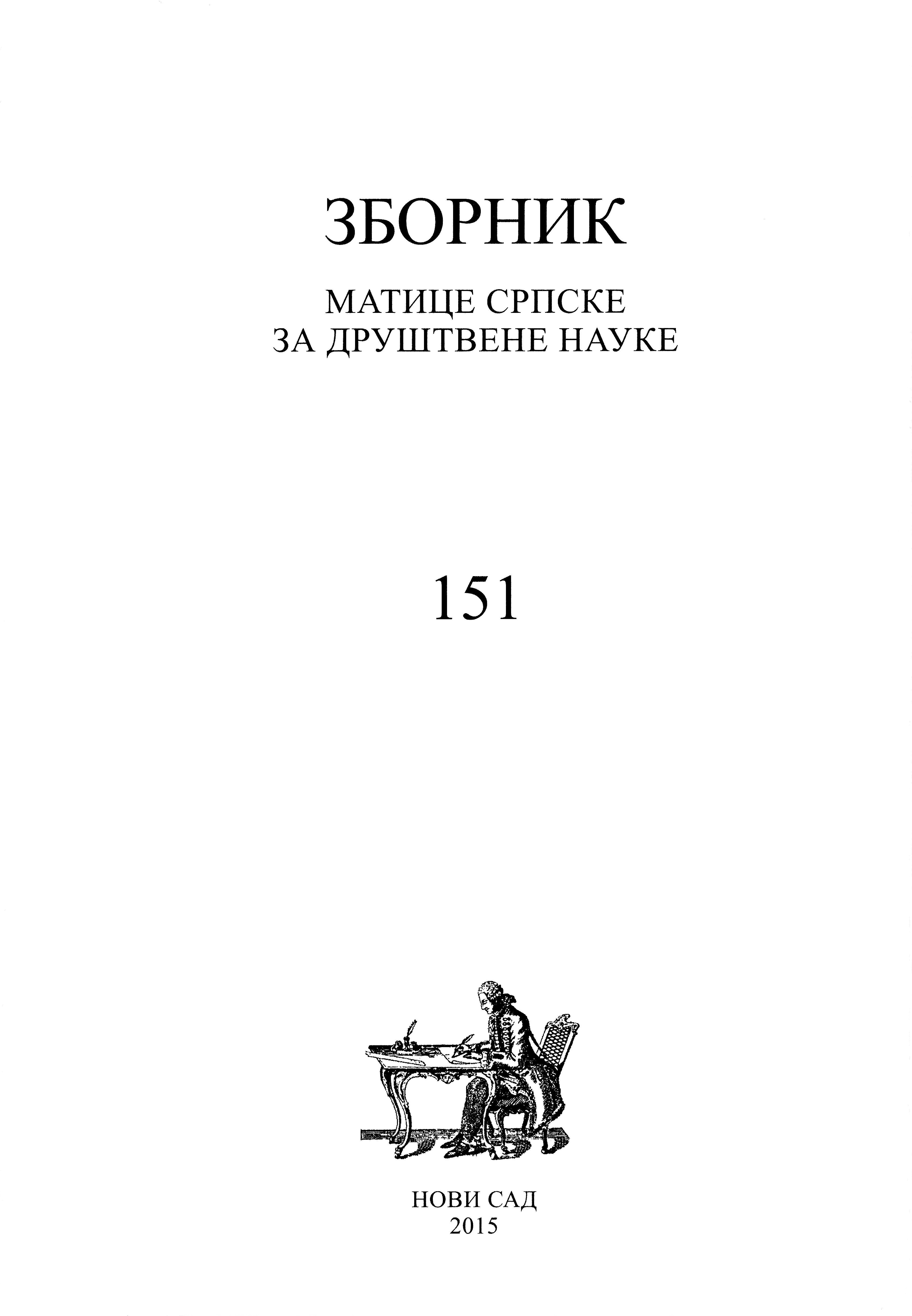
Recognition is an instrument of the public international law founded in the classical international law. Still, it preserves its main characteristics formed in the period when states dominated as the only legal persons in international community. Nevertheless, the instrument of recognition is today as vibrant as ever. As long as it does not have a uniform legal definition and means of application, it leaves room to be applied to very specific cases. In this paper, the instrument of recognition is elaborated from two aspects – theoretical and practical. First (theoretical) part of the paper presents main characteristics of the notion of recognition, as presented in main international law theories – declaratory and constitutive theory. Other part of the paper is focused on the recognition in the case of Kosovo. Within this part, main constitutive elements of state are elaborated, with special attention to Kosovo as self-proclaimed state. Conclusion is that Kosovo does not fulfill main constitutive elements of state. It is not an independent and sovereign state. It is in the status of internationalized entity, with four international missions on the field with competencies in the major fields of state authority – police, judiciary system, prosecution system, army, human rights, etc. Main normative framework for the status of Kosovo is still the UN Resolution 1244. It is also the legal ground for international missions, confirming non-independent status of Kosovo. States that recognized Kosovo despite this deficiency promote the constitutive theory of recognition, while states not recognizing Kosovo promote declaratory theory. Brussels Agreement, signed by representatives of Serbia and Kosovo under the auspices of the EU, has also been elaborated through the notion of recognition – (1) whether it represents recognition; (2) from the perspective of consequences it provokes in relations between Belgrade and Pristina. Official position of Serbian Government is clear – Serbia does not recognize Kosovo as an independent and sovereign state. On the other hand, subject matter of Brussels Agreement creates new means of improvement for Kosovo authorities in the north part of Kosovo. Thus, Serbian position regarding the recognition is twofold – it does not recognize Kosovo in foro externo, and it completes its competences in foro domestico. What has been underlined through the paper and confirmed in the conclusion is that there is not a recognition which has the power to create a state and there is not a non-recognition which has the power to annul a state.
More...
In the first part of an article, the author offers a theoretical overview of the institution of referendum, while in the other part there is an overview of the referendum in Switzerland, as the state with a long tradition of direct democracy, and Croatia, as a state which only recently adopted the concept of referendum as a means of citizens' decision making. The referendum is such a form of direct democracy, which most directly and to the greatest part, allows citizens to participate in the process of making decisions which are important for them. If we take into account the great diversity of forms and ways of implementing the referendum, it is not surprising that today there are various types of referendums, such as constitutional and legislative, mandatory and facultative, preceding and subsequent, binding and advisory referendum, etc. Switzerland is probably the best example of a state where the referendums are conducted, since they are possible in the constitutional, as well as in legislative matters, both at federal and cantonal, even municipal level, some of them are mandatory (obligatory), and some facultative and the very initiative for their implementation can come both from the citizens and the cantons. In Croatia, there are constitutional and legislative referendum, which is always binding (advisory referendum has not been provided, except at the local level), and is almost always facultative, except in one case where it is mandatory. In addition to the referendum which to be held at the national level, there is one at the local level, where citizens can directly participate in the management of local activities.
More...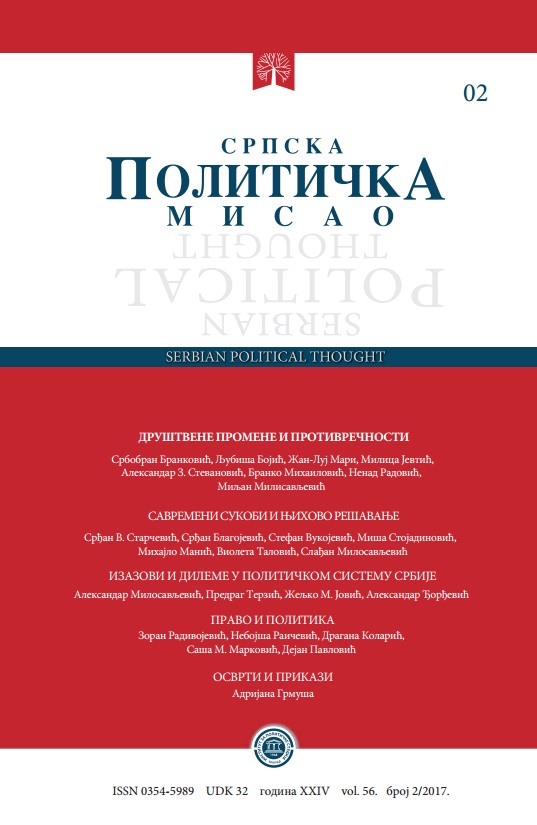
Studying the reasons behind the inability of modern armed forces, including those belonging to extremely powerful states, to gain a victory in low-intensity conflicts, Martin van Creveld came to a conclusion that what lies at the root of the problem is Clausewitz’s understanding of war, due to which he tried to reevaluate Clausewitz’s theory of war. This paper critically examines the key arguments used by Creveld in order to refute Clausewitz’s concept of war as a political instrument: firstly, before the creation of modern states (i.e. before 1648) war had not been trinitarian during a long period of history, and outside European borders, and prior to Europe’s colonial influence and decolonization process, as well as during Clausewitz’s time, a state was not an only entity capable of war; secondly, the total war marks the end of a war as the instrument of politics, because it overcomes states, governments, people, politics and economy; thirdly, war has not always been only an extended arm of politics, but also of justice, religion and mere existence. Creveld is right when arguing that war may be lead not only by a state but also by some other entities. However, Clausewitz did not claim the opposite. The Prussian General also recognized that war had not always been strictly business of a government, but that it became that in the 17th century. According to Clausewitz, war again became people’s business after the changes occurring in France in 1793. In order to illustrate the spread of this phenomenon in Europe, Clausewitz uses the same example as Creveld – the national uprising against Napoleon’s government in Spain. In addition, Clausewitz was also aware that the time of limited war had passed and that after Napoleon, whom he calls the god of war himself, war would start approaching its abstract form. However, what does not stand is Creveld’s idea that such a war is a kind of independent „monster”, out of the politics, and perhaps even above it. Looking at the First World War, Creveld points out that by 1916, the war had become so independent of the politics that even the most decisive statesmen were not able to escape from it, which, in his opinion, refutes Clausewitz’s thesis of a war as an instrument of politics. However, when shifting attention from the Western to the Eastern Front, one would see that what led to the end of the war was the radical change of politics in Russia after the October Revolution. When it comes to the extraction of war from the political sphere, whether it is understood as a means of law/justice, religion, survival or it has a sphere of its own, different from the political, legal, religious and existential ones, there is a serious discrepancy between Clausewitz’s and Creveld’s understanding of politics, and precisely because of this difference there is a gap between their theories. The notion of war as a continuation of law/ justice or religion is a consequence of the narrowing of a political framework. Creveld reduces politics to the affairs of the state or the ruler. On the other hand, Clausewitz expands the concept of politics to its sociological and even philosophical understanding. Creveld is closer to understand the politics as the art of management, whereas Clausewitz is closer to the definition of politics as the general social process of directing society towards certain goals. The paper shows that the gap between Clausewitz’s and Creveld’s notions of the causes of war results from different views these two theoreticians have on war. It was concluded that the enemies in the war fight to achieve their goals, namely to realize/protect what they perceive as their interest, and/or expand or defend their (social or collective) values, which all defines the goals of war taking into consideration both Clausewitz’s view from the top, from the position of decision-makers, as well as Creveld’s view from the bottom, from the position of those members of society (groups) who are going to the war. The authors conclude that the ferocity of war as a form of social conflict is manifested in the armed struggle, but its essence is always in the political sphere.
More...
In this paper, in an attempt to develop an extensive review, the author strives to present legislative drafting process in Germany, role of different institutions in legislative drafting process, public discussions on draft law, transparency of procedure and decision making, quality check of the legislation and continuous improvement of procedure. Reason for presenting this overview of German system is need for advancement and improvement of legislative drafting process in Serbia, especially having in mind OSCE/ODIHR assessment of law drafting in Serbia from December 2011 and challenges in process harmonization of domestic legislation with the EU acquis.
More...
The contracts are made to be kept – pacta sunt servanda. This maxim surely is the cornerstone of any effective contract law system, but it cannot, and never has, reigned supreme in each and every legal system. Unexpected events that dramatically change the landscape of a particular contract do occur, rendering its performance sometimes impossible but more often much more onerous for one party. This article deals with the second situation. The aim is to analyze the standpoint of three major European legal systems – French, English and German – on the issue of what (if anything) happens to the contract and rights of the parties if contractual performance becomes more onerous than initially envisaged. This area offers fertile ground for comparative analysis as it will be shown that these three major legal systems adopt genuinely different solutions. These can be sorted on a scale, with the French law being by far the least responsive and German law on the other containing codified rules to flexibly deal with these situations.
More...
The article deals with so called ,,minor“ international legal assistance in criminal matters (international legal assistance in the narrower sense) and reviews conditions for its exercising stipulated in Serbian and comparative law. ,,Minor’’ international legal assistance usually refers to conduct of procedural activities and implementation of measures such as interrogation of the accused, witnesses or experts, inspection, implementation of search and seizure of objects, surveillance and tapping of telephone and other conversation or communication, exchange of information and delivery of writs and cases, temporary surrender of a person in custody, etc. The author analyses provisions of Serbian Law on International Legal Assistance in Criminal Matters and compares them with Croatian, Italian, German and Argentinean regulation. He concludes that adoption of Serbian Law is an improvement in comparison with the old regulation, although it does not regulate in detail this issue. He notices that the basic problems with this institute are ,,procedural“ differences between rules in different countries concerning the form of such activities and measures.
More...
Florijan Bašić - John McCormick Zašto je Europa važna? Argumenti za Europsku uniju Mate, Zagreb, 2015., 198 str. Tea Jambrešić - Daunis Auers Comparative Politics and Government of the Baltic States: Estonia, Latvia and Lithuania in the 21st Century Palgrave Macmillan, Basingstoke, 2015., 269 str.
More...
Legal liability for the period which precedes the conclusion of a contract is an issue which has been solved differently in various legal systems. Regulation of this area via legal rules is not a simple task because of the large number of different acts which can occur – from preliminary inquiries about the possibility of cooperation up to detailed agreements which are one step from being contracts. Should the party which broke off the negotiations, despite the other party possibly having expenses and being certain about the conclusion of the final agreement, be sanctioned and how? The aim of this article is to present the answers to these questions which were given by the laws of England, France and Germany through the analysis of statutory rules, jurisprudence and doctrinal opinions. The conclusion that can be reached is that there is a clear cut distinction between the divergent approaches of English law and continental systems in this area, but also that certain unacceptable behaviours during the negotiations are often similarly sanctioned by using different legal concepts.
More...
This article identifies, describes, analyzes and compare the main tax provisions in favor of culture in the following countries: United Kingdom, Spain, Italy, Bulgaria, Slovenia, France and Ukraine. Besides the usual tax benefits and incentices, the paper identifies some innovative hybrid instruments, constituting mix of the tax tool and other techniques. It assesses given tax policies and their efficiency as to identify improvement areas and new opportunities.
More...
The foreign judgments and arbitral awards have no direct force outside the forum’s jurisdiction. They will have effect in a foreign jurisdiction only after their recognition in special procedure. If we are talking about recognition of foreign judgments and arbitral awards as a main issue, the most authors in Montenegro and Serbia consider that the best procedure is extra-judiciary procedure. The procedure for recognition and enforcement in United States of America starts with an action on the foreign judgment, and the claimant practically demands confirmation of foreign judgments by its converting into American judgment. Comparating survey of procedures for recognition of foreign judgments and arbitral awards in Montenegro, Serbia and United States of America, leads us to conclusion that there is substantial reciprocity between all of them. The fact that procedure in Montenegro and Serbia starts with application, and in United States of America with an action, could not affect it. Because, in all of these countries, the recognizing court just check are all formal and substantial conditions fulfilled, and in no circumstances may a foreign judgment be reviewed as to its substance. The conditions and procedure for recognition in United States of America are not more difficult than conditions or procedure in Montenegro and Serbia, and vice versa, so some existing differences should not contribute to non-recognizing American judgments in Montenegro or Serbia, or Montenegrinian or Serbian judgments in United States of America.
More...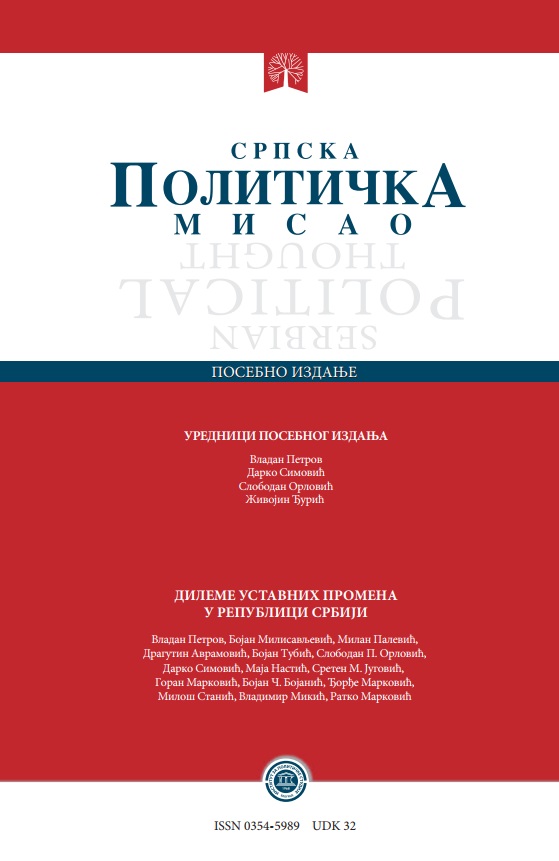
Although notions of rule of law and legal state are mostly considered as synonyms, the author points to some substantial differences between them, having in mind value loading of rule of law concept. As a result of comparative analysis of many European constitutions where the principle of legal state and rule of law is constitutionalized, it appears that most European countries accept the principle of legal state (Rechtsstaat), while minority recognize rule of law as a fundamental principle (mostly ex-Yugoslav countries, except Slovenia). Absence of the legal state principle in those countries is probably due to inconsistent terminology, politically motivated borrowings or fashionable and careless legal transplants. Namely, in the official English translations of many European constitutions the term “legal state” is often translated as “rule of law”. In that way, if one takes into account only English translations of different constitutions and not the actual language of the state and of the particular constitution, one may get impression that the rule of law principle is absolutely predominant in European constitutions, and it contradicts to the factual situation. This is not the case with the 2006 Constitution of Serbia, as well as in other ex-Yugoslav countries. They recognize the principle of rule of law in national wording of their constitutions. The author criticizes constitutionalization of the rule of law principle instead of legal state approach. He points to few examples of unnecessary referring to rule of law in the Serbian constitution and of redundant listing and explanations of the rule of law principle. He also criticize decision of the constitutional drafters to incline uncritically to the basically universalistic liberal version of rule of law, which should have been at least partially adapted to social peculiarities of the Republic of Serbia.
More...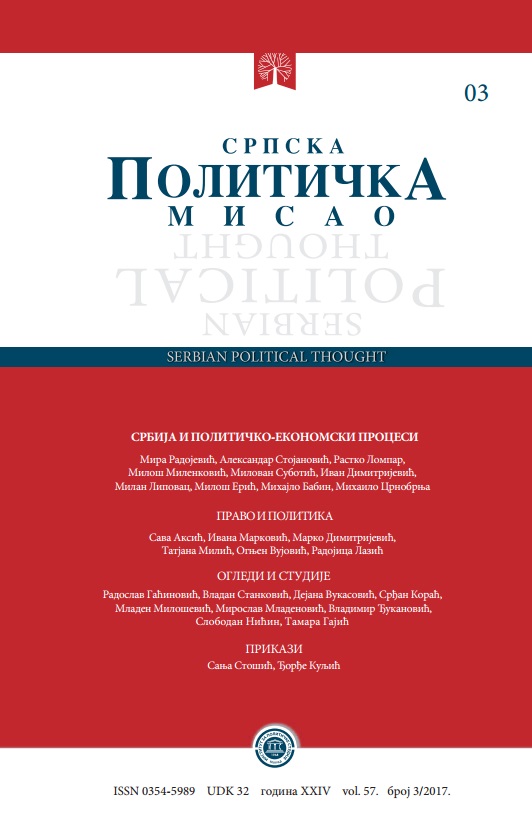
Turkey as undoubtedly a regional power with clearly expressed intentions to emerge from the Regional framework, sees the Balkans as its first sphere of interest. She does this because of the undoubtedly strong historical connections that exist with Balkans since the Ottoman Empire, thinking that todays Balkans is temporarily occupied territory of the former Ottoman Empire and naturally it belongs to Turkey. Reflecting on the neo-Osmanic concept of Turkish state policy outlined in Ahmet Davutoglu’s „Strategic Depth”, four components can be clearly identified that define the direction of Turkey’s actions towards the Balkans, or four directions engaging the Turkish intelligence structure in order to influence the politics of Balkan states. Those are: 1. Assisting and strengthening the political leadership of the Balkan states and quasi-states that are in friendly relations with Turkey 2. 2. Recruitment of numerous Muslim diaspora from the Balkan region in Turkey and recruitment of their relatives in the Balkan countries for action in favor of TFM 3. 3. Influence in the sphere of economy, especially in the area where the majority population is Muslim 4. 4. Creating a space for the affirmation of cultural content offered by Turkey in the Balkan countries through which the image of the Ottoman Empire’s period regime changes In all these fields, Turkey is very active, using various permissible diplomatic methods of interstate cooperation, but within which she is often able to engage certain activities, in the wake of humanitarian work and connection with their compatriots, actually serve as a method of intelligence work. Turkey does most of this through its agency „TIKA” (Organization for International Cooperation and Development) belonging to the Turkish Foreign Ministry, but also through many other organizations of religious and educational character. In the coming period of general geopolitical and potential borders changes, this paper aims to contribute to revealing how Turkey, as a regional power intent on raising itself from the regional environment and wants through intelligence to act towards its Balkan neighbors and Serbia too.
More...